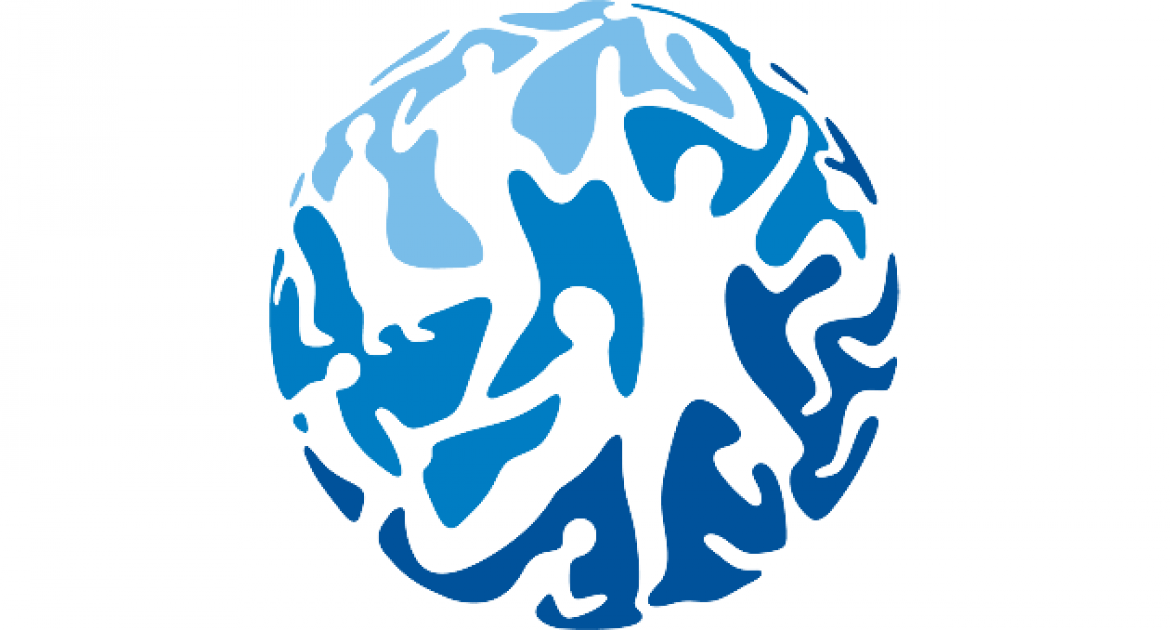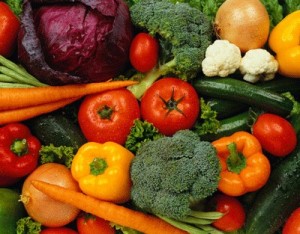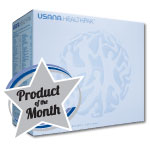
Nutritional supplements – who needs them?
Written by Ravinder Lilly – Dietitian and Health Writer
 The recipe to good health? Well, there are lots of ingredients. Exercise lightens up body and mind. Steering clear of cigarette smoke is another (smoking is the single greatest cause of preventable illnesses). Taking time to de-stress is an important cure to fast-paced 21st century living (yoga and Tai chi are excellent stress busters as is strenuous exercise). But perhaps the cornerstone to good health, the one that most of us would cite as being number one on the get-healthy-and-stay-that-way list is a healthy, mixed diet.
The recipe to good health? Well, there are lots of ingredients. Exercise lightens up body and mind. Steering clear of cigarette smoke is another (smoking is the single greatest cause of preventable illnesses). Taking time to de-stress is an important cure to fast-paced 21st century living (yoga and Tai chi are excellent stress busters as is strenuous exercise). But perhaps the cornerstone to good health, the one that most of us would cite as being number one on the get-healthy-and-stay-that-way list is a healthy, mixed diet.What the professionals say
Dietitians have urged us to enjoy a mixed diet that includes a wide variety of foods. Go for the most natural and freshest of seasonal produce. Eat a rainbow of fruit and veggies every day. Fill up on fibre and hydrate with H2O. Get the calcium that your bones need and the essential fats from oily fish and nuts like walnuts that will give your body the nutrients and the antioxidants it needs for good health.
And, a healthy diet should supply all the nutrients we need say the Dietitians Association of Australia. So, the results of a recent US study might surprise you…
Researchers questioned 300 registered dietitians about their views on nutritional supplements. Their study, published in the Nutrition Journal, found that a massive 74 per cent of dietitians took nutritional supplements regularly, while a fifth (22 per cent) reported using them occasionally or seasonally. A massive 97 per cent of the dietitians interviewed recommended supplements to their clients.
Most popular were a multivitamin (84 per cent); 63 per cent took calcium and 43 per cent took vitamin D. Asked why they took them, half of the dietitians (58 per cent) said they took nutritional supplements for bone health, 53 per cent took them for overall wellness and 42 per cent said they took them to fill nutrient gaps in their diet. Nearly all of the professionals (95%) said they were interested in continuing to learn about dietary supplements on a variety of topicsi.
Could your diet do with a nutrient kick?
 Nutritional shortfalls can happen for lots of reasons. For example, some people have increased needs for nutrients – take the young, pregnant and breastfeeding women, the ill and elderly – for example. Plus, people choose nutritional supplements because it’s difficult – or sometimes impossible – to get all the nutrients needed from foods alone, all of the time.
Nutritional shortfalls can happen for lots of reasons. For example, some people have increased needs for nutrients – take the young, pregnant and breastfeeding women, the ill and elderly – for example. Plus, people choose nutritional supplements because it’s difficult – or sometimes impossible – to get all the nutrients needed from foods alone, all of the time. Fruits and veggies are an example. One University of Sydney studyii found that young people didn’t know what constituted a serve of fruit and veg (some students estimated a serve of grapes as being just one grape instead of 20 grapes and one in ten incorrectly said that beef counted towards their daily fruit and veggie intake). And, according to the Australian Institute of Health and Welfare, over 90 per cent of Australian adults don’t eat enough vegetables while almost 50 per cent don’t eat their fruit quotaiii.
Vitamin D is another perhaps surprising example. Mounting evidence shows that the majority of us just aren’t getting the amounts of vitamin D needed to protect health, and that’s no matter how careful we are. Although the sun is the major source of vitamin D (which is made when a cholesterol-like substance in the skin reacts with the sun’s ultraviolet light) and despite living in the sunny southern hemisphere, around one in three of us is short on vitamin D which is essential for a healthy immune system, strong bones and teeth and many more functions. We may be particularly low on vitamin D in the winter months when there is less sunshine about.
Minerals such as iodine may also be a nutritional problem; a Nutrition Australia reportiv reveals that recent studies in Sydney, Tasmania and Melbourne indicate that: ‘Levels of iodine in schoolchildren, healthy adults, people with diabetes, and pregnant women are sub-optimal.’ In other words, iodine deficiency exists in large groups of people. Mild iodine deficiency has also been seen in New Zealand.
It seems that many of us don’t get enough calcium from foods and drinks either. Conditions such as kidney disease and long term use of steroids reduce calcium absorption. So, a calcium supplement may be a good idea.
USANA’s answer to time-short, stressed, nutrition-needy 21st century individuals is a three-in-one nutritional supplement HealthPak™. Although this potent mix of antioxidants can’t replace a healthy, mixed diet, it’s a good insurance policy against falling short of the kind of antioxidant protection your body needs. HealthPak is pre-packaged in two daily pouches. The contents are based on the Essentials™ range, a unique nutritional supplement that contains a wide mix of nutrients – vitamins, minerals and plant pigments – to boost health at the cell level to benefit the whole body.
The Essentials contains:
- Carotenoids and lycopene and other plant antioxidants, used by the body to make vitamin A and help protect prostate health amongst other health benefits.
- Vitamin D, needed to help your body absorb calcium to keep bones and teeth strong.
- Folic acid. As well as increasing folate (the natural form of this vitamin) via veggies and fruits, women who are pregnant (or are considering pregnancy) should take a supplement of folic acid pre-conception and for the first 12 weeks of pregnancy. This is when the brain and the spinal cord are developing in the unborn baby. Supplementation with folic acid helps to reduce the risk of neural tube defects (where the spinal cord fails to close properly).
- B vitamins. The B complex contains eight different B vitamins including vitamin B12. Strict vegetarians and older people who lack a protein in the stomach called intrinsic factor may be short on vitamin B12 which is vital for healthy blood (in order for B12 to be absorbed, the body needs to produce intrinsic factor and this decreases with age).
- Iodine. Australia is one of 50 countries worldwide listed by the World Health Organisation as being at risk of iodine deficiency. Sub optimal levels are also seen in New Zealand.
The AO Booster contains:
- Resveratrol and grape seed extract, powerful antioxidants which help to maintain healthy capillaries and skin health. Resveratrol isn’t found in any other USANA product.
- Alpha-lipoic acid for additional antioxidant protection. Alpha lipoic acid is a potent anti-inflammatory which is both fat and water soluble. Because of this, it can enter every body cell. Alpha lipoic acid increases the body’s ability to take glucose into the cells which may help to improve insulin sensitivity.
Active Calcium Plus contains:
- Calcium (with vitamin D and K), taking calcium in supplement form can help to safeguard adequate intakes including at times when needs are high, e.g. during growth and to prevent osteoporosis; the risk of which is especially high for post-menopausal women. Take it in conjunction with magnesium and vitamin D to enhance absorption.
- Magnesium also needed for bone health and helps to reduce leg cramps.
USANA’s HealthPak is great for travelling and there’s no need to fuss with various bottles or trying to remember which tablets to take and when. It’s all there when you need it!
Vitamin supplements should not replace a balanced diet.
USE ONLY AS DIRECTED. ALWAYS READ THE LABEL.
*IF SYMPTOMS PERSIST SEE YOUR DOCTOR OR HEALTH CARE PROFESSIONAL.
References:
i: Dietitians use and recommend dietary supplements: report of a survey
Annette Dickinson1*, Leslie Bonci2, Nicolas Boyon3 and Julio C Franco3 Nutrition Journal 2012, 11:14 doi:10.1186/1475-2891-11-14 http://www.nutritionj.com/content/11/1/14
ii: Young Australians lack good quality fruit and vegetable knowledge. The University of Sydney. http://sydney.edu.au/news/84.html?newsstoryid=8352
iii: Australian Institute of Health and Welfare. http://www.aihw.gov.au/diabetes-indicators/diet/
iv: Nutrition Fact Sheet. Nutrition Australia.http://www.nutritionaustralia.org/sites/www.nutritionaustralia.org/files/Iodine_Printable Detailed Summary.pdf





